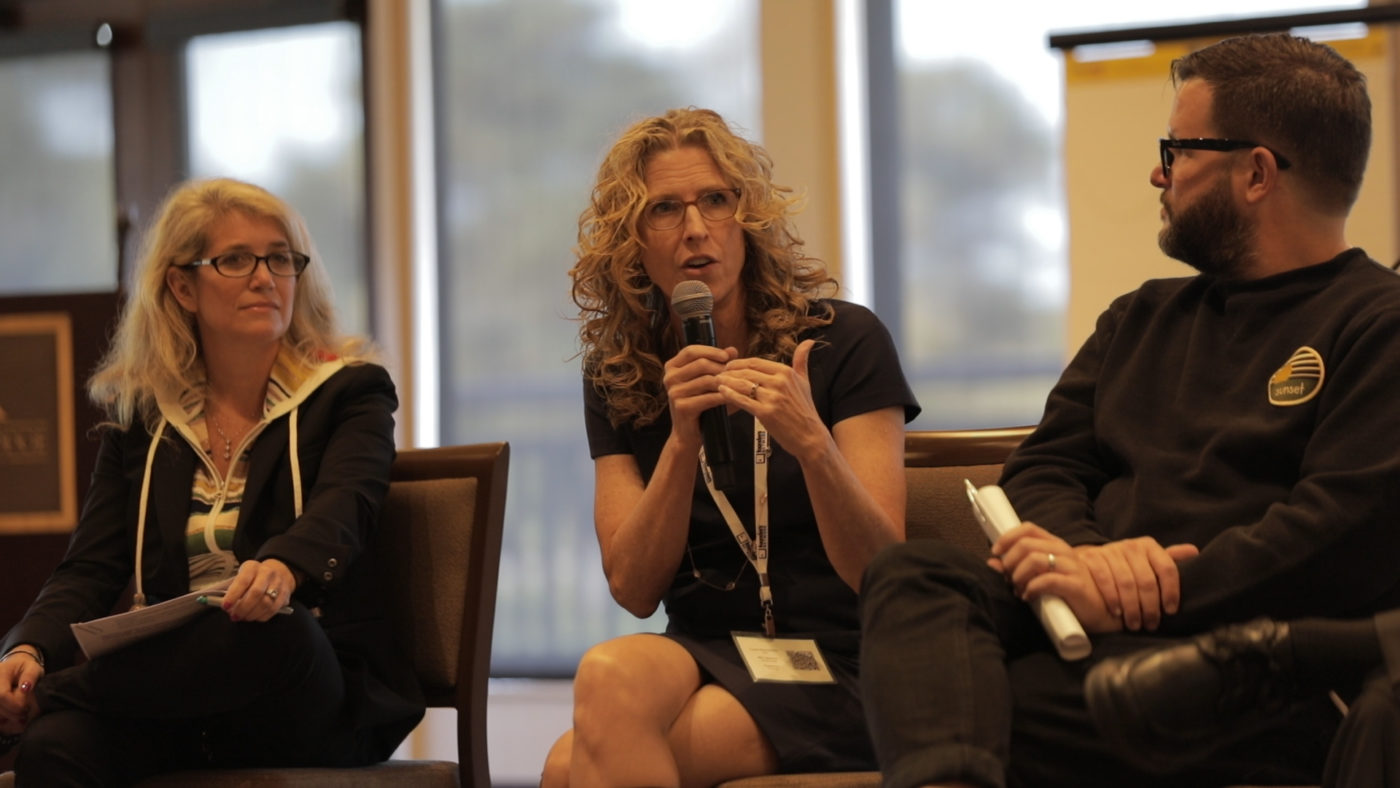
We recently closed our startup, Publisha (which later became ViewsHound), and one of the most important lessons I want to share with you concerns when your startup should focus on profit, rather than growth.
We ran our company based on the fact that we would receive a certain amount of money every month from our major investor. As such, we concentrated on building our technology and growing our user base quickly. The strategy of the company was to consciously choose not to focus on profit or on breaking even in the short term, but going for growth instead. So how did that work out?
Well, the plan worked to start with, and we did indeed build our technology and grew our user base. We ended up with over 13,000 fans on Facebook within a few months of launching ViewsHound, which isn’t too shabby. But then disaster struck! For personal reasons that couldn’t have been foreseen earlier, our investor wasn’t able to continue his investment! So we had a company, we had some traction, but we didn’t have any cash coming in! As I learned on my MBA— and damn well wish I’d remembered here—“Cash is King”! Without cashflow, you’re sunk. So guess what? We sank!
We could have tried to raise investment, but we didn’t think that we’d get a great valuation for the company, and would probably have to give away a large part of our equity. Since some of the co-founders had a minority stake in the first place, it just wasn’t appealing, so we decided to close the company.
So maybe we were just unlucky? In one sense we were, but you know what they say: s*** happens! And if it happens anywhere, it happens in a startup when you’re working with extreme uncertainty. We underestimated the risk of not receiving our investment cash—a risk that turned out to be a 100% reality!
Looking back, what we should have done is try to get to profit, or at least break-even, more quickly. Then if the investment cash dried up it wouldn’t have been lights-out time! We should have built multiple revenue streams more quickly, and relied on our customers to pay our bills, not our investors.
Personally, I’m with Jason Fried of 37signals on this one. A business should make money from the start. Otherwise it’s not actually a business! We should have charged more money for more things. Customers loved what we were doing, and they could and would have paid more than they did. In fact, when we announced we were closing, one business user, who we weren’t charging any money at all, paid us $150 a month to keep the server up for a while longer!
If we had been making money, we would also most likely have received a higher valuation for the company if we chose to get further investment. Alternatively, we might not have even needed further investment, and could have kept more of the equity in the company for ourselves.
So that’s my big lesson from having to close our company down: break even as quickly as you can, aim for profit as soon as you can, and if the going gets tough, at least you can keep going!
What do others say?
According to the US Small Business Administration (SBA), about 7 out of 10 new businesses survive their first two years, whereas only about 50% survive their 5th year and 26% survive more than 15 years. We should however mention that these numbers cover all small businesses and not just tech startups.
Mark Suster, a 2x entrepreneur turned VC, agrees that focus should be on profit and puts it like this: “Most companies (98+%) in the world (even tech startups) should be very profit focused. Being profitable allows you degrees of freedom you don’t have when you rely upon other people’s money.” It simply provides you with more opportunities and makes the startup sustainable much faster.
VC Fred Wilson appears to agree with this, or at least on the fact the businesses should aim to break even if they are not making money, rather than running at a loss while growing.
Martin Zwilling, recommends that you “focus on profit all the time, every time. Of course, growth is implied in every focus, and profit enables growth.”
So, in conclusion, for most businesses, most of the time, it would appear that focusing on profit is a useful thing to do. Just like Henry Ford could have told you 100 years ago! Maybe things don’t change that much after all.Rich Text AreaToolbarBold (Ctrl + B)Italic (Ctrl + I)Strikethrough (Alt + Shift + D)Unordered list (Alt + Shift + U)Ordered list (Alt + Shift + O)Blockquote (Alt + Shift + Q)Align Left (Alt + Shift + L)Align Center (Alt + Shift + C)Align Right (Alt + Shift + R)Insert/edit link (Alt + Shift + A)Unlink (Alt + Shift + S)Insert More Tag (Alt + Shift + T)Proofread WritingToggle fullscreen mode (Alt + Shift + G)Show/Hide Kitchen Sink (Alt + Shift + Z)Add Author Avatars Shortcodes
FormatFormat▼
UnderlineAlign Full (Alt + Shift + J)Select text color▼
Paste as Plain TextPaste from WordRemove formattingInsert custom characterOutdentIndentUndo (Ctrl + Z)Redo (Ctrl + Y)Help (Alt + Shift + H)
Image from Flicker by AaronPattersonWe recently closed our startup, Publisha (which later became ViewsHound), and one of the most important lessons I want to share with you concerns when your startup should focus on profit, rather than growth.
We ran our company based on the fact that we would receive a certain amount of money every month from our major investor. As such, we concentrated on building our technology and growing our user base quickly. The strategy of the company was to consciously choose not to focus on profit or on breaking even in the short term, but going for growth instead. So how did that work out?
Well, the plan worked to start with, and we did indeed build our technology and grew our user base. We ended up with over 13,000 fans on Facebook within a few months of launching ViewsHound, which isn’t too shabby. But then disaster struck! For personal reasons that couldn’t have been foreseen earlier, our investor wasn’t able to continue his investment! So we had a company, we had some traction, but we didn’t have any cash coming in! As I learned on my MBA— and damn well wish I’d remembered here—“Cash is King”! Without cashflow, you’re sunk. So guess what? We sank!
We could have tried to raise investment, but we didn’t think that we’d get a great valuation for the company, and would probably have to give away a large part of our equity. Since some of the co-founders had a minority stake in the first place, it just wasn’t appealing, so we decided to close the company.
So maybe we were just unlucky? In one sense we were, but you know what they say: s*** happens! And if it happens anywhere, it happens in a startup when you’re working with extreme uncertainty. We underestimated the risk of not receiving our investment cash—a risk that turned out to be a 100% reality!
Looking back, what we should have done is try to get to profit, or at least break-even, more quickly. Then if the investment cash dried up it wouldn’t have been lights-out time! We should have built multiple revenue streams more quickly, and relied on our customers to pay our bills, not our investors.
Personally, I’m with Jason Fried of 37signals on this one. A business should make money from the start. Otherwise it’s not actually a business! We should have charged more money for more things. Customers loved what we were doing, and they could and would have paid more than they did. In fact, when we announced we were closing, one business user, who we weren’t charging any money at all, paid us $150 a month to keep the server up for a while longer!
If we had been making money, we would also most likely have received a higher valuation for the company if we chose to get further investment. Alternatively, we might not have even needed further investment, and could have kept more of the equity in the company for ourselves.
So that’s my big lesson from having to close our company down: break even as quickly as you can, aim for profit as soon as you can, and if the going gets tough, at least you can keep going!
What do others say?
According to the US Small Business Administration (SBA), about 7 out of 10 new businesses survive their first two years, whereas only about 50% survive their 5th year and 26% survive more than 15 years. We should however mention that these numbers cover all small businesses and not just tech startups.
Mark Suster, a 2x entrepreneur turned VC, agrees that focus should be on profit and puts it like this: “Most companies (98+%) in the world (even tech startups) should be very profit focused. Being profitable allows you degrees of freedom you don’t have when you rely upon other people’s money.” It simply provides you with more opportunities and makes the startup sustainable much faster.
VC Fred Wilson appears to agree with this, or at least on the fact the businesses should aim to break even if they are not making money, rather than running at a loss while growing.
Martin Zwilling, recommends that you “focus on profit all the time, every time. Of course, growth is implied in every focus, and profit enables growth.”
So, in conclusion, for most businesses, most of the time, it would appear that focusing on profit is a useful thing to do. Just like Henry Ford could have told you 100 years ago! Maybe things don’t change that much after all.
Path:






